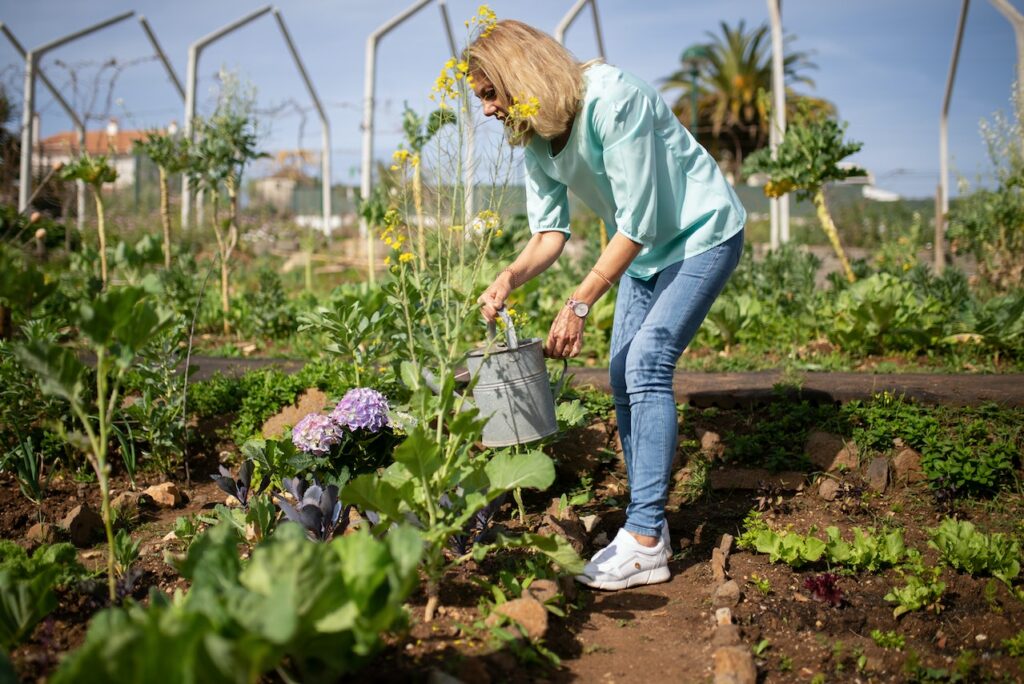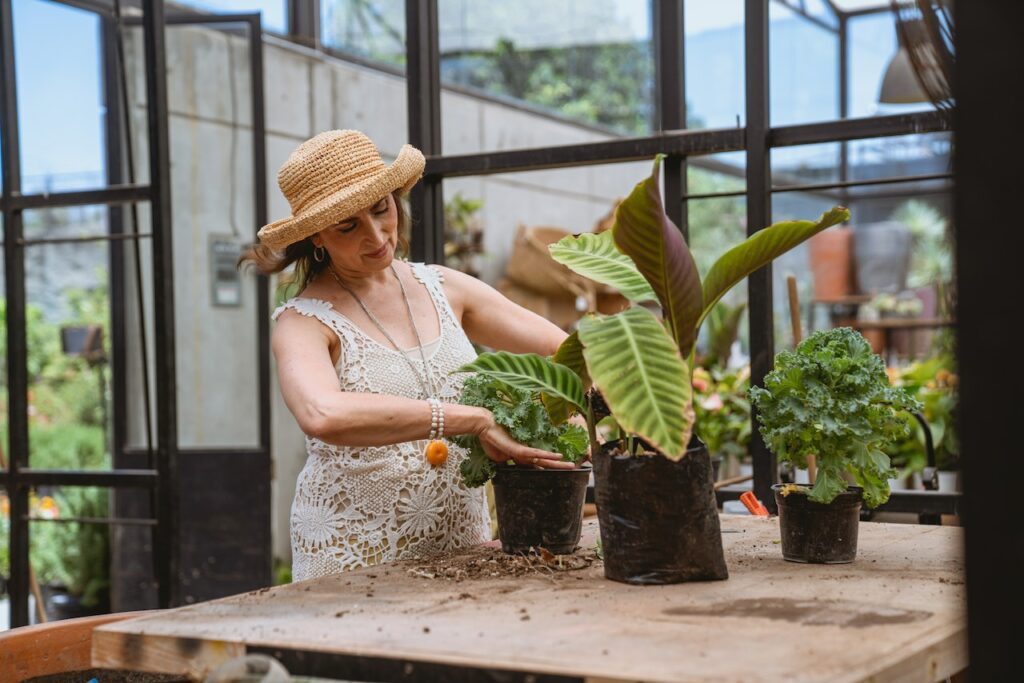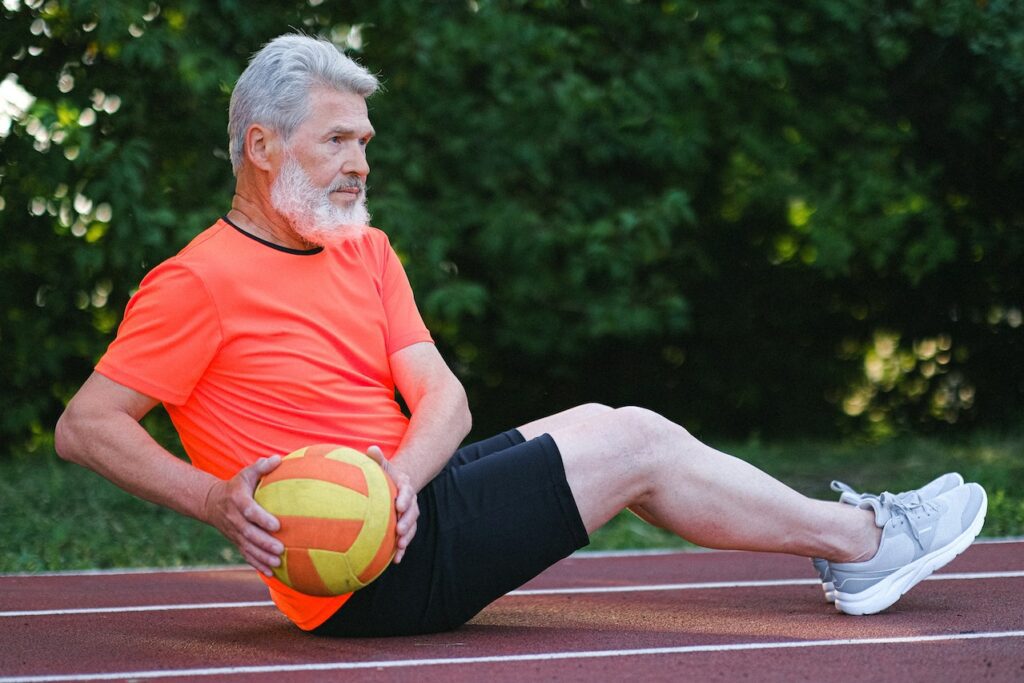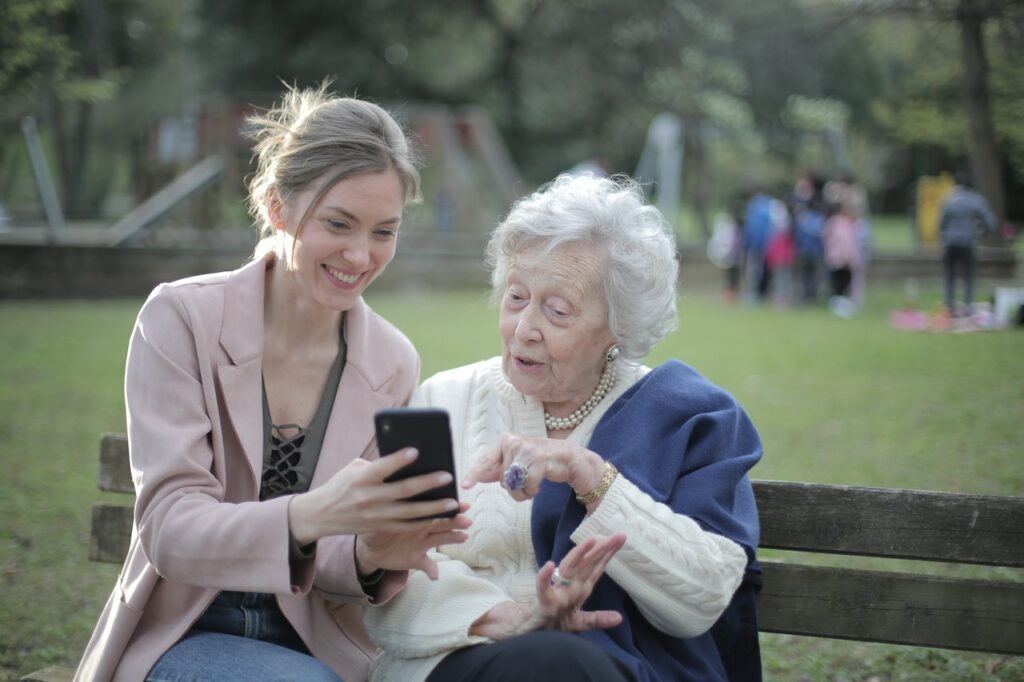Wondering Which Are the Best Activities for Seniors?
We enter this year after a difficult era that challenged our nation’s resilience. We’re reconstructing our lives and finding comfort in joyful and fulfilling activities after the COVID-19 pandemic.”Life begins at 50″—remember? That saying is now truer than ever. This is the time to try new things, revisit old interests, and discover new places. These hobbies will improve your mind and body, while helping you enjoy life at its fullest!
I’ll offer a personal anecdote. My mom painted with watercolors after retiring. She always appreciated the art form but never had time to study it while she was young. Her imagination grew when she took up the paintbrush, and she loved expressing herself via bright strokes on a canvas. It was her happy retreat and a form of self-expression.
In fact, all of seniors’ new hobbies have that power. They make us happier, help us develop, and link us. We’ll explore 14 fascinating activities meant for you to enhance this wonderful time in your life!
Let’s explore your many options together. Prepare to discover new interests, spark your creativity, and enjoy more spare time. Your journey begins now!

Discover Gardening
Retirement gardening may be quite rewarding. It allows those over 50 to interact with nature and offers many physical, mental, and emotional benefits.
A 2019 Journal of Aging and Physical Activity research showed how gardening improves physical health. This research found that frequent gardening by older persons improved cardiovascular fitness, muscular strength, and physical function. Digging, planting, weeding, and watering offer low-impact exercise that may improve balance, flexibility, and mobility.
Gardening also improves mental and cognitive health. In 2016, the Journal of Aging and Health found that gardening reduces cognitive decline in older persons. According to the study, gardening improves cognitive function via physical exercise, cerebral stimulation, and natural exposure. Gardening needs planning, problem-solving, and ongoing plant care education, stimulating the brain and improving cognition.
What’s more, this hobby also improves emotional health and enjoyment of life. Planting, seeing them flourish, and enjoying nature may provide contentment, purpose, and peace. Connecting with nature helps reduce stress, anxiety, and loneliness. Gardening reduces depression and improves emotional well-being.
Of course, gardening promotes a green lifestyle. Grow your own fruits, veggies, and herbs to eat better and limit processed food consumption. You may enjoy fresh, organic products and reduce your carbon impact.
Joining local gardening organizations or community gardens lets you meet other plant and environmental lovers. Sharing information, experiences, and even excess harvests builds camaraderie and belonging, particularly during retirement when social ties are vital to well-being.
Create Art
Seniors may express themselves, have fun, and find contentment in their golden years by participating in creative arts. Art provides several ways to express your creativity, including painting, sketching, ceramics, and local art schools and workshops. Creative arts provide several advantages for elders, according to a study by Zauszniewski et al.
The research examined art therapy’s impact on older individuals’ mental health and well-being in 2019. Art therapy improved participants’ emotional well-being, self-esteem, and quality of life.
Art offers a unique way to express yourself. Each thing you create reflects your inner world and lets you communicate your viewpoint.
Creative arts also heal from past trauma, fatigue, and other mental or emotional burdens. It lets you escape everyday life by immersing yourself in colors, textures, and forms. Artmaking relieves stress, releases endorphins, and increases happiness.
Painting, sketching, and ceramics are all great options for beginners. Local art courses and workshops provide a helpful and caring atmosphere where you may meet like-minded people, learn from experienced artists, and get feedback on your work.
Creative arts boost brain health and cognition. It enhances hand-eye coordination, brain connections, and problem-solving. Observation, inspiration, and execution maintain your brain sharp and flexible throughout the creative process.
Stay Fit
Seniors must be active. Regular exercise improves physical and mental health. Walking, yoga, swimming, and senior exercise programs may help you live a healthy, happy life in 2023 and beyond.
Physical exercise improves elders’ health and well-being. Lee et al. studied cognitive performance and physical activity in older persons in 2017. Regular exercise prevented cognitive deterioration and increased cognitive function. This research shows that physical exercise is crucial to brain health as you age.
Walking, an underrated form of exercise, is easy and effective. Walk around your neighborhood and parks. Walking improves cardiovascular health, bone strength, joint flexibility, and mood. Brisk walking is an energizing low-impact workout, so aim for 30 minutes most days.
Seniors love yoga’s gentle exercises and breath concentration. Yoga increases flexibility, balance, and relaxation, whether you practice at home or in a class. It calms the mind and body. Senior yoga sessions include adaptations and gentle practices for your requirements.
Swimming is another great full-body exercise with little joint impact. Dive in for a low-impact, invigorating workout. Swimming boosts cardio, muscle, and flexibility. Many community centers offer water aerobics or senior swimming programs, making it a great way to mingle.
You can join senior fitness courses. These sessions allow older persons to exercise in a safe, supportive atmosphere. These sessions are safe and fun for all fitness levels, from strength training to chair exercises. You’ll become healthy and make friends.
Physical activity has several advantages. Regular exercise improves mood, energy, cognitive function, and risk of chronic illnesses including heart disease and diabetes. Physical exercise maintains a healthy weight, boosts the immune system, and improves sleep, enabling you to enjoy life.
Join a Book Club
Seniors may profit from reading as well as enjoy new worlds. Joining a book club lets you enjoy reading, making friends, and having intriguing conversations. In 2023, when information is at your fingertips, a book club is ideal for American seniors over 50 to discover literature, discuss ideas, and build community.
Reading improves mental health and cognition. Reading reduced cognitive deterioration in elderly persons in a 2019 Wilson et al. research. Reading consistently, especially demanding content, slowed cognitive deterioration. This research underlines the cognitive advantages of everyday reading.
Joining a book club helps you read more and meet other bookworms. Book clubs are safe places to share your views, interpretations, and feelings about the books you read. These vigorous dialogues improve your knowledge, views, and critical thinking.
Book clubs are fantastic for discovering new authors and genres. You may uncover new books, undiscovered treasures, or old favorites. The club’s varied reading options enable you to extend your literary horizons and find new voices you like.
In the long run, you’ll read more with a timetable and the promise of lively debates. Reading reduces stress, boosts memory, empathy, and brainpower. It lets you enjoy the written word and contemplate without distractions.
Book clubs currently include in-person, virtual, and hybrid formats. Choose a group that fits your involvement style for ease and flexibility. Public libraries, community centers, and online platforms host many book clubs for diverse genres, ages, and interests. Finding a book club that fits your tastes and schedule has never been simpler.
Community Volunteer
As a 50-year-old American senior in 2023, you have a lot to give your community. Volunteering is a great opportunity to give back, make a difference, and find meaning in your golden years. By volunteering for local groups, charities, or assisting the needy, you may strengthen your community and improve yourself.
Research shows that volunteering improves people and communities. Li and Ferraro’s 2018 research evaluated how volunteering affects older persons’ well-being. Volunteering improved life satisfaction, depressive symptoms, and social integration among seniors. Volunteering may improve your life in many ways, as this research shows.
Volunteering lets you change people’s lives. Volunteering in a food bank, homeless shelter, hospital, or animal shelter may provide pleasure, comfort, and support to people in need. By helping others, you may improve society.
This heartwarming hobby also lets you make new acquaintances from varied backgrounds. It allows meaningful conversations, story-sharing, and learning from others. Volunteering builds community, empathy, and understanding.
Local groups benefit from your skills and interests. If you have accounting experience, you may help a charity with financial management. Volunteer in a community garden to share your gardening skills. Leveraging your expertise helps the company succeed and fulfills you.
After all, volunteering boosts self-esteem and well-being by giving meaning. Meaningful activities that match your ideals may give life new meaning and happiness. Volunteering may help you develop new talents, expand your horizons, and grow personally.
For example, volunteering for events or community clean-ups may improve fitness, vitality, and health. Volunteering provides structure and regularity, which improves health.
Music Lessons
You can learn to play a musical instrument as a 50-year-old American senior. Playing an instrument is fun at any age and has amazing advantages. Whether you play the piano, guitar, ukulele, or any instrument that interests you, you may enjoy music, engage your intellect, and enjoy the many benefits of producing beautiful songs.
Playing a musical instrument improves cognition and mental health, according to research. Bugos et al. examined how piano instruction affects cognitive performance in older persons in 2016. Piano lessons improved cognitive processing speed, attentiveness, and executive function in older individuals. This research highlights the cognitive advantages of studying a musical instrument and the ability of music to improve mental sharpness.
Learning an instrument is fun and beneficial. Music requires memory, concentration, and coordination. It challenges your brain and improves multitasking and cognitive performance. Learning to read sheet music, recall chords or notes, and coordinate your fingers stimulates your brain in a unique manner.
Playing an instrument allows for self-expression and creativity. It lets you express yourself via music. Whether you’re performing a sad ballad or a happy melody, doing music is fulfilling. Playing an instrument lets you express your creativity and love of music.
Seniors should learn piano, guitar, or ukulele. From classical to modern, the piano lets you explore a varied repertoire. Beginners may play it because of its tactile nature and keyboard sounds. The guitar’s mobility and adaptability provide lovely chords and melodies. Seniors like the ukulele’s mellow tone and ease of use. You may enjoy learning any instrument at your own speed.
Learning an instrument fosters socializing. Joining a local music group lets you share your passion and create lovely harmonies with other musicians. Jam sessions, open mic nights, and band formations promote camaraderie and enduring connections. Music creates a feeling of community.
Playing a musical instrument has been connected to stress reduction, emotional well-being, and cognitive advantages.
Cook or Bake
Whether you’re a pro or a beginner, cooking beautiful food is fun. Try new recipes, make nutritious meals, and bake your favorites to delight your taste buds, foster your creativity, and live a better lifestyle.
Home cooking improves nutrition and health, according to research. Mills et al. evaluated older individuals’ food quality and home cooking in 2017. Cooking at home more often improved food quality, adherence to dietary requirements, and calorie intake. This research highlights the health advantages of cooking.
Exploring new dishes and tastes is fun. Online recipe websites, food blogs, and video lessons provide endless culinary inspiration. There are recipes for foreign cuisines, family favorites, and plant-based meals.
Cooking your own meals lets you customize ingredients and recipes to your diet. Home cooking allows you to make conscientious choices, whether you have dietary restrictions, food allergies, or want to eat better. Reduce salt, sugar, and unhealthy fats and add good grains, fruits, and vegetables to meals. Cooking at home lets you eat healthy, nutritious meals.
Learning to bake may satisfy your sweet taste and provide you and others pleasure. Bake delicious sweets, pastries, and delights. Baking allows for creativity and self-expression.
Baking is also a great way to bond with loved ones. Invite friends and family over for afternoon tea with handmade cookies or cakes. Sharing handmade delicacies brings delight, friendships, and memories.
There are several ways to adjust dishes to your diet. There are many gluten-free and dairy-free recipes and ingredient replacements. Almond or rice flour may replace wheat flour, while almond milk or coconut cream can replace dairy goods. This is your sign to try new things in the kitchen!
Are you an active senior looking for physical activities instead? Check out these 7 Cool and Refreshing Summer Activities for Seniors!
Journal or Blog
Starting a diary or blog may be transformational, providing a creative avenue to record your ideas, reflect on your experiences, and share your knowledge. Writing opens up a world of possibilities.
Research shows that expressive writing improves mental and emotional health. Pennebaker and Beall’s 1986 research examined expressive writing’s effects on mental and physical health. Expressive writing improves happiness, stress, and healthcare visits. This research shows that writing may improve your health.
Journaling lets you record your thoughts, emotions, and experiences. It’s a safe space for self-expression. Journaling brings insight and catharsis, whether you use pen and paper or a digital platform. It helps you express emotions, acquire self-awareness, and find comfort in writing.
Journaling also aids self-reflection and development. Documenting your life’s ups and downs creates a story. Reviewing past posts might reveal trends and help you find yourself. It helps you understand your beliefs and goals.
In addition to journaling, blogging may be a great way to share your views, experiences, and skills. Blogging lets you have meaningful discussions, meet like-minded people, and contribute to online communities. A blog lets you share your expertise and encourage others about cooking, gardening, travel, or other topics.
Blogging also allows for personal growth. You learn and keep intellectually engaged by researching blog subjects. Reader input builds community and promotes improvement.
Journaling and blogging also leave a legacy. Your children, grandkids, and others may learn from your insights and experiences. You leave a lasting legacy by recording your life lessons and memories.

Discover Tech
Technology offers many possibilities in our digital era – and it can bring many activities for seniors. You may embrace technology and explore as a 50-year-old American senior. Smartphones, tablets, and laptops enable you communicate with loved ones, access online information, and try new interests. Let’s explore technology’s marvels.
Cotten et al. examined older persons’ mental and social well-being and Internet usage 2013. Internet usage lowered sadness and enhanced social contact among seniors, improving well-being. This research shows how technology may improve seniors’ life.
Technology’s capacity to link us with family across distances is invaluable. Smartphones, tablets, and PCs allow you to conduct video calls and see your grandchildren’s smiles. Sharing stories, events, and connections has never been easier. Use technology to build your relationships.
Regardless of your chosen gadget, these devices open a wealth of information and resources. You can learn about new subjects, hobbies, and current events with a few clicks. Online tutorials, classes, and instructional resources let you study at your own speed. Use these resources to discover new passions or deepen current ones.
In fact, tech devices may also lead to new hobbies and fun activities. Digital platforms and apps for art, photography, gardening, and cooking abound. Try guided meditation applications or digital painting and design. Explore new paths and showcase your abilities using technology.
Technology also simplifies everyday existence. Numerous applications and internet platforms help elders manage money and healthcare. Track prescriptions, schedule appointments, and manage money using apps. Technology helps you organize and manage.
Start with the fundamentals. Learn about smartphones, tablets, and PCs. Attend tech-savvy family or friend seminars.
Technology enhances life, not replaces it. Take things slow and seek help. Use online lessons or senior-specific seminars. Honestly, I loved fitness apps that offer recorded training sessions because I could create my own schedule. However, it all comes down to your personal preferences!
Conclusion
Here’s the main conclusion you should stick with: your spare time is a gift, and there are many ways to enjoy it. We hope this blog article inspired you to choose fantastic activities that may improve your life, well-being, and happiness in 2023.
From gardening to creative arts, physical activities to book clubs, volunteering to learning a musical instrument, cooking to beginning a diary or blog, and even exploring technology, each activity has its own rewards and experiences. These activities help you connect with people and the globe.
These hobbies may promote mental and emotional health, decrease stress, boost cognitive performance, and increase satisfaction, according to 1986 Pennebaker and Beall research. They allow self-expression, socialization, and development.
As you start your adventure, remember to be open-minded and eager to explore new things. Start small, make reasonable objectives, and have fun. Every step you take toward a more satisfying and vivid life—gardening, reading a riveting book, volunteering, or learning to play an instrument—is a step toward it.
Explore, create, connect, and enjoy each day in a world full of possibilities. Don’t shy away from new experiences. Supportive communities, skilled advice, and milestone celebrations are key.
Dear seniors, may these activities bring you pleasure, contentment, and a fresh sense of purpose as you begin this new chapter. Use your newfound spare time to produce lasting memories. Age is simply a number, and possibilities are endless.
Embrace nature, release your creativity, nurture your body and mind via physical activity, participate in intellectual debates, give back to your community, discover new tunes, indulge in culinary pleasures, and write about your views and experiences. These are the things that make life worth it, trust me!














